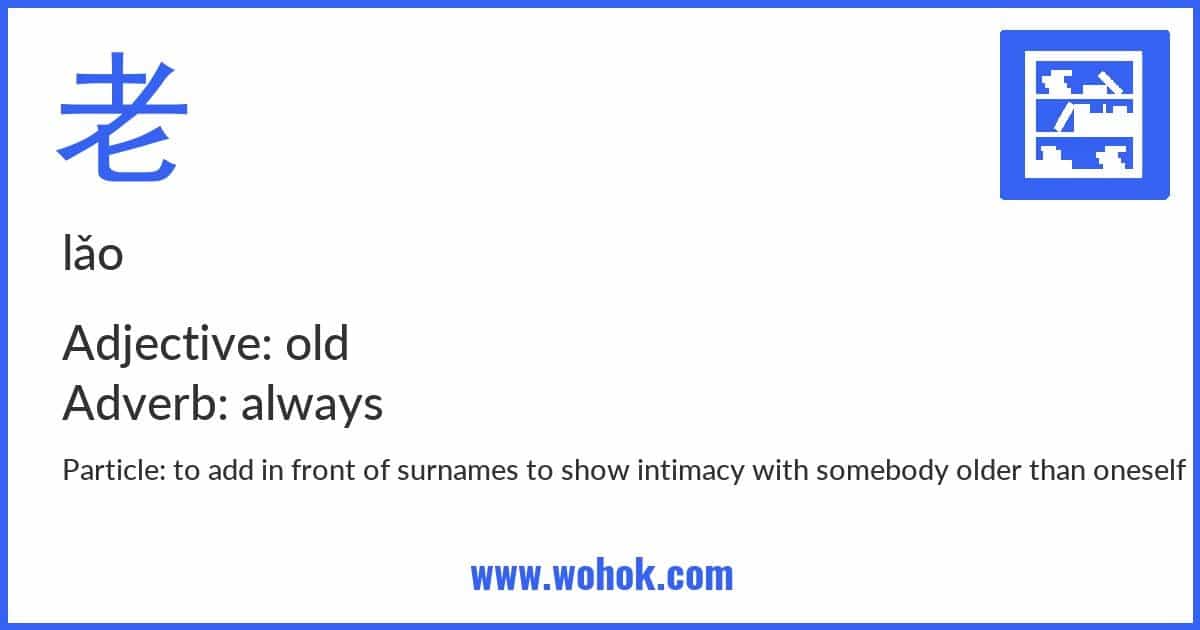The Chinese word 老 has multiple meanings depending on the context in which it is used. One of its most common meanings is “old” or “elderly”, as in 老人 which means “old person” or “elderly person”. It can also be used to mean “experienced” or “skilled”, as in 老手 which means “an experienced hand” or “a skilled person”. Additionally, 老 can be used as a term of endearment or respect for someone who is older or more senior, as in 老师 which means “teacher” or “master”.
Translation
Adjective: old
Adverb: always
Particle: to add in front of surnames to show intimacy with somebody older than oneself (mostly for men)
Pronunciation
Example Sentences
| Chinese | Pinyin | Engish |
|---|---|---|
| 他的爷爷很老了 | tā de yéyé hěn lǎo le | His grandfather is very old |
| 她的婆婆看起来很老 | tā de pópo kàn qǐlái hěn lǎo | Her grandmother looks very old |
| 这个城市有很多老建筑 | zhège chéngshì yǒu hěn duō lǎo jiànzhú | This city has many old buildings |
| 我的狗已经老了 | wǒ de gǒu yǐjīng lǎo le | My dog is already old |
| 这个老师很有经验 | zhège lǎoshī hěn yǒu jīngyàn | This teacher has a lot of experience |
| 我喜欢听老歌 | wǒ xǐhuan tīng lǎo gē | I like to listen to old songs |
| 他是老板,你要听他的话 | tā shì lǎobǎn, nǐ yào tīng tā de huà | He is the boss, you have to listen to him |
| 这个电视机已经很老了,需要换一个 | zhège diànshìjī yǐjīng hěn lǎo le, xūyào huàn yī gè | This TV is already very old, it needs to be replaced |
HSK
老 is part of HSK Level 3 in HSK 2.0. In the newer HSK 3.0 it is part of HSK Level 1 and HSK Level 2.
Learning Card


